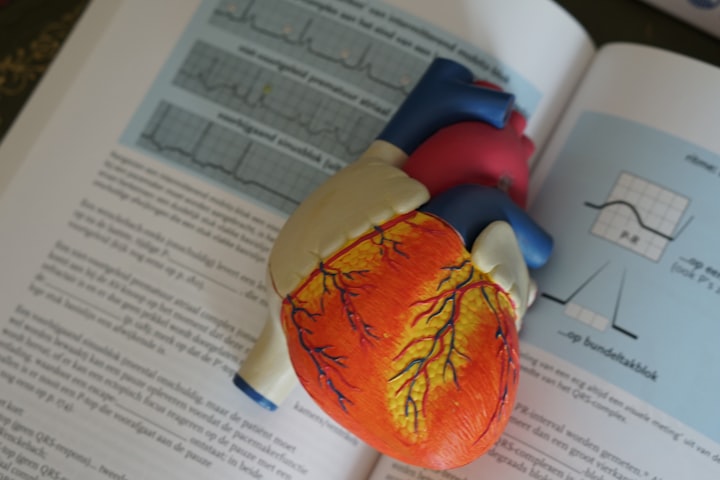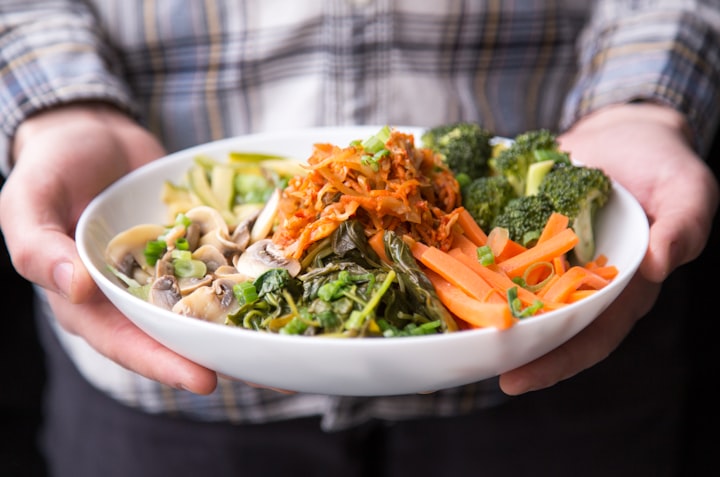80% of Cardiovascular Diseases are Preventable, So Why Are We Still Not Taking The Necessary Precaution?
Eight Key Promising Nutrients For Avoiding Heart Attacks & Strokes

I was reading, an article today, when I picked up a quote, by the author, K. Barrett. She said, ''Nature itself is great medicine for anything that ails us''. And it kept me thinking about how everything we need for our enjoyment and good health is easily available in Nature.
So one wonders why there are so many diseases, that plague us in life. For instance, the incidences of cardiovascular diseases are huge. The Office of National Statistics in the UK said heart disease is the number one killer in the UK, with over 500,000 deaths in the UK alone last year. And the sad part is that over 80% of this is preventable. So why are we not taking the necessary precaution then?
Experts say that common-sense lifestyle changes - involving correct nutrition, enough exercise and proper stress management - can go a long way towards alleviating the growing epidemic of heart disease and reducing the risk of heart attacks and strokes.
The main issue of lifestyle changes is ''eating the right food'', which many unfortunately ignore. I believe the level of education and information available now, no one should take his/her health for granted. Here are the eight key nutrients for your heart health:
1.Bitter Bergamotto
Bitter Bergamont (Citrus Bergamia) is an Italian bitter green or yellow/ orange. The rind has a kind of floral aroma, noted for its bergamot oil. Research shows it is rich in antioxidants, polyphenols which is very beneficial to the heart. It also reduces harmful LDL (bad cholesterol), and improve the level of HDL (good cholesterol).
Bergamot oil, an essential oil, can reduce anxiety, as well as cleanse and purify the blood.
2. Magnesium
Magnesium is essential in muscle function, (more than 300 muscle movement rely on magnesium to function) including the heart muscle, and help balances the heart rhythm. It is mainly found in fish, leafy green vegetables and nuts.
''Magnesium deficiency is linked to a shocking litany of ills, including stroke, atherosclerosis, ischemic heart disease, cardiac arrhythmias, endothelial dysfunction, increased platelet aggregation (Meaning: increased vulnerability to stroke-inducing blood clots), increased inflammation, obesity and high blood pressure.'' Jonathan Landsman
3. Eat The Rainbow
Eat the rainbow is a term to indicate food diversity on your plate. Red vibrant colours mean the presence of natural plant pigments (carotenoids). Carotenoids, which include beta-carotene, lycopene, lutein and zeaxanthin, are powerful antioxidants with extraordinary abilities to fight disease. Foods rich in carotenoids are pumpkins, carrots, egg yolk, yam and squash.
A potent antioxidant and anti-inflammatory, astaxanthin is believed to help improve blood flow and to reduce the "stickiness" of blood platelets, thereby preventing and minimizing blood clots that could cause a stroke.
Foods rich in astaxanthin are algae, salmon, trout, crayfish, shrimp and yeast. Fresh fruits and vegetables are also high in quercetin, a plant-based flavonoid that helps protect the heart from oxidative damage.
In one study of 800 men aged 65 to 84 years published in the Journal of the American Heart Association, researchers found that those who consumed the highest amounts of quercetin were a stunning 68 per cent less likely to have a fatal heart attack initiated by underlying heart disease.
4. A powerful antioxidant and anti-inflammatory, curcumin may be able to reduce oxidative damage to the heart muscle
Curcumin, a component in turmeric is a powerful anti-inflammatory property, which improves the function of the endothelium, (the thin membrane that lines the inside of the heart and blood vessels). It has been proved that curcumin can increase the flow of blood in the vessels by dilation of the blood vessels. This easy flow prevents blood pressure and therefore stroke.
Curcumin also reduces arterial fat deposit by as much as 26%.
5. Vitamin K2 Reduces Calcium Deposit And Therefore Prevents Cardiovascular Disease
A deficiency in vitamin K has been known to increase calcium deposit in arterial walls, therefore blood can coagulate. Indeed the name K is from the German word ''Koagulationsvitamin''. It is needed for the prevention of blood clotting.
Vitamin K is found in leafy vegetables such as kale, spinach, parsley, and green lettuce.
6. B-Complex vitamins reduce levels of inflammatory homocysteine
Research indicates that vitamins B-complex reduces homocysteine levels effectively. Homocysteine is a type of amino acids used to make protein in the body. The level in the blood needs to be regulated. The B-complex like B12, B6, and folic acid break down excess homocysteine for other body needs.
High homocysteine level is a risk factor in heart disease and is associated with low levels of folic acid, B12 and B6.
B vitamins are mostly water-soluble, which means excess pass out via urine. B-complex, therefore, needs to be replenished regularly. Foods rich in B-vitamins are unprocessed whole grains like brown rice, millet and barley, Eggs are rich in B5, and B12. Citrus foods are rich in B1, B2 and B3. B5, B6 and B9 (folate). Avocados contain folate and B6. Meat, poultry and fish contain B3, B6 and B12.
7. Omega-3 Fatty Acids - Beneficial fats with anti-inflammatory Properties
The oil in omega 3 fatty acids prevents or lowers the risk of a heart attack, especially sudden cardiac arrest. Foods rich in omega 3 fatty acids are salmon, mackerel, tuna, herring and cod.
8. Other Important Health Factor
It is important to maintain a healthy weight, blood pressure, blood sugar and cholesterol. Get moderate physical exercise for about thirty minutes to two hours daily.
Eat healthy, organic, non-GMO fruits and vegetables. Minimise or eliminate fast, processed and junk foods.
Reduce or eliminate smoking, alcohol consumption.
Manage stress with outdoor activities, mindfulness and guided meditation.
The Takeaway
Just remember that the natural therapies stated above are meant to be used as a complement to, and not a replacement for, standard medical treatment. Never eliminate or reduce your prescribed medication unless advised to do so by your doctor.
You can reduce your heart disease risk by living in the moment, worrying less and being realistic with your situations. Unnecessary worry about todays' standard of living can cause your blood pressure to rise.
Seek help if you feel you are unable to cope with any crises that may occur.
maintaining a healthy and trusted friendship also help and add credence to our heart health.
About the Creator
Lanu Pitan
An avid reader first and foremost. A lover of Nature, as Nature is the language of God. Love is all that the law demands.






Comments
There are no comments for this story
Be the first to respond and start the conversation.